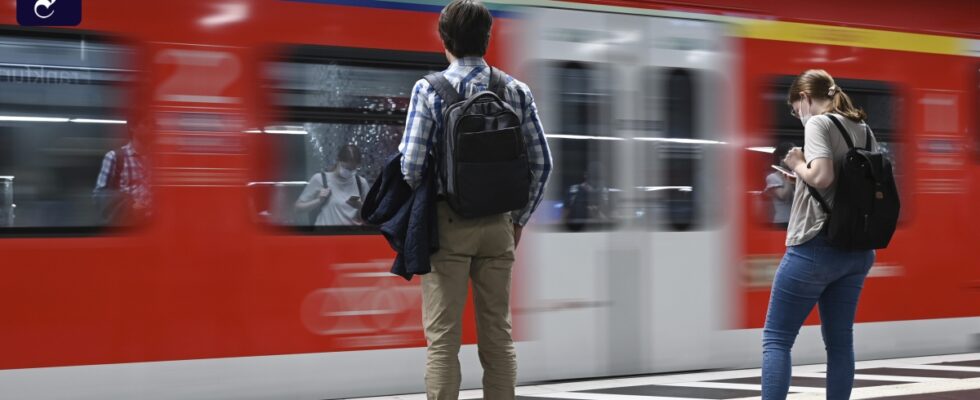Dhe Deutschlandticket is on its way. From May onwards, citizens should be able to use local public transport throughout the country for 49 euros a month. However, according to scientists, the Germany ticket will not be a bestseller like the 9-euro ticket. Experts expect this to be an incentive only for certain groups of people to leave their cars at home.
In surveys in November and December 2022, only around 15 percent stated that they wanted to buy and use the Deutschlandticket regularly, said Mark Andor from the RWI Leibniz Institute for Economic Research in Essen, to the science editors Science Media Center. Another 10 percent of those surveyed were still undecided. Most of them probably don’t want to subscribe to the digital ticket.
Traffic researcher Gernot Liedtke from the Technical University of Berlin adds that discussions with buyers of the 9-euro ticket indicate that the price for the new 49-euro ticket is too high for many occasional bus and train users. He assumes that all season ticket holders will subscribe to the Deutschlandticket. Some who use local transport a few times a month would switch from single tickets to the 49-euro ticket and then refrain from driving more often: “This is where the main relief for the environment takes place.”
Too expensive for the “really big breakthrough”
The traffic scientist Jan Schlueter from the University of Applied Sciences and Arts, Holzminden, also does not expect that the Germany ticket will be able to build on the success of the 9-euro ticket: “With the pricing of the 49-euro ticket, the target group is shifting, since the fixed price of 49 euros is likely to exclude occasional and impulse buyers.”
The mobility researcher Andreas Knie from the Berlin Social Science Center (WZB) sees it similarly: “Our research has shown that 29 euros for one month would be a price at which the vast majority of sales would be expected. In any case, 49 euros is too expensive to really make a big breakthrough.”
To CO2Savings with the help of the Germany ticket, Liedtke said, if one assumes that the previously sporadic local transport users will soon be leaving their cars at home more often, 2 million tons could be the upper limit for CO2-Assume annual savings. Savings are likely to be in the order of a million tons a year.
According to economist Andor, strong shifts in mobility can only be expected among commuters with good connections. However, this group is too small to save substantial amounts of greenhouse gases. If, on the other hand, a 29-euro ticket that also includes long-distance transport and a shared taxi call for the last mile should prevail, around a third of current car journeys could be shifted to public transport, according to mobility researcher Knie.
